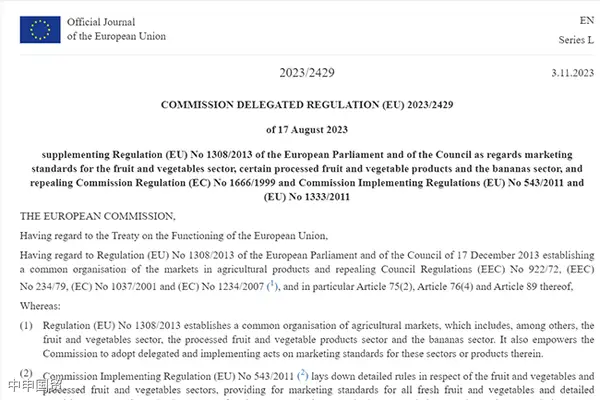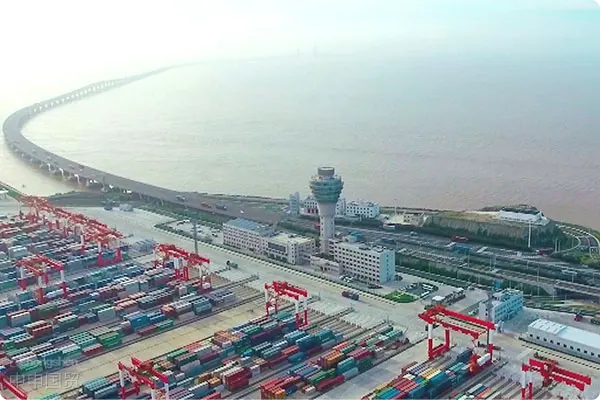- Shanghai Zhongshen International Trade Co., Ltd. - Two decades of trade agency expertise.
- Service Hotline: 139 1787 2118
On November 3, 2023, the Official Journal of the European Union published the new Marketing Standards Regulation for Fruit and Vegetables (EU) 2023/2429. This regulation comprehensively revised the existing marketing guidelines and established new trade rules, which have a direct impact on all EU member states and trading partners related to the fruit and vegetable supply chain. Now lets take a detailed look at these changes and discuss how they affect market participants.

I. Core Content and Scope of the Regulation
(1) Regulation Content
This regulation further standardizes the trade standards for fruit and vegetables by clarifying the minimum marketing requirements for products and the consistency requirements for imported products with EU marketing standards. These rules apply to products in the EU internal market and those imported from third countries, aiming to ensure that all products sold in the EU market meet the established quality and safety standards.
(2) Scope
The regulation covers a wide range of product categories, including fresh - sold fruit and vegetables, as well as certain processed products such as dried fruit. This means that all these products, whether produced within the EU or imported from abroad, must comply with the new marketing standards.
II. Sales Standards and Origin Marking Provisions
(1) Sales Standards
The new general sales standards stipulate the classification, packaging, and labeling requirements for fruit and vegetables. Specifically, these standards relate to product quality, size, packaging, and clear label information to ensure that consumers can obtain accurate product information when purchasing.
(2) Origin Marking
The new regulations emphasize the importance of origin marking, especially for certain processed products and ripe bananas. The country of origin must be clearly indicated on the packaging of these products to provide more transparency and help consumers make more informed purchasing decisions.
III. Supply Chain Information Requirements and Implementation Details
(1) Supply Chain Information
The regulation requires clear and indelible product information to be provided at all stages of the supply chain. This includes indicating the product name, country of origin, and possibly the product category, variety, or commercial type on the packaging or in the accompanying documents.
(2) Packaging and Labeling of Mixed Products
For mixed packages containing multiple products, each product must meet the corresponding sales standards, and the specific information of each product needs to be indicated on the packaging.
(3) Implementation Details
This regulation will be fully implemented on January 1, 2025, except for specific provisions that have come into effect immediately. This provides an adjustment period for industry participants so that they can adjust their business processes to ensure full compliance with the new regulations.
With the implementation of Regulation (EU) 2023/2429, although facing adjustment and compliance costs, complying with these new standards is crucial for maintaining market access and consumer trust. Therefore, enterprises should review and update their operating processes in a timely manner to ensure that every step from the source to the market complies with the new EU regulations.
For more details, see the announcement: COMMISSION DELEGATED REGULATION (EU) 2023/2429
Related Recommendations
? 2025. All Rights Reserved. Shanghai ICP No. 2023007705-2  PSB Record: Shanghai No.31011502009912
PSB Record: Shanghai No.31011502009912










